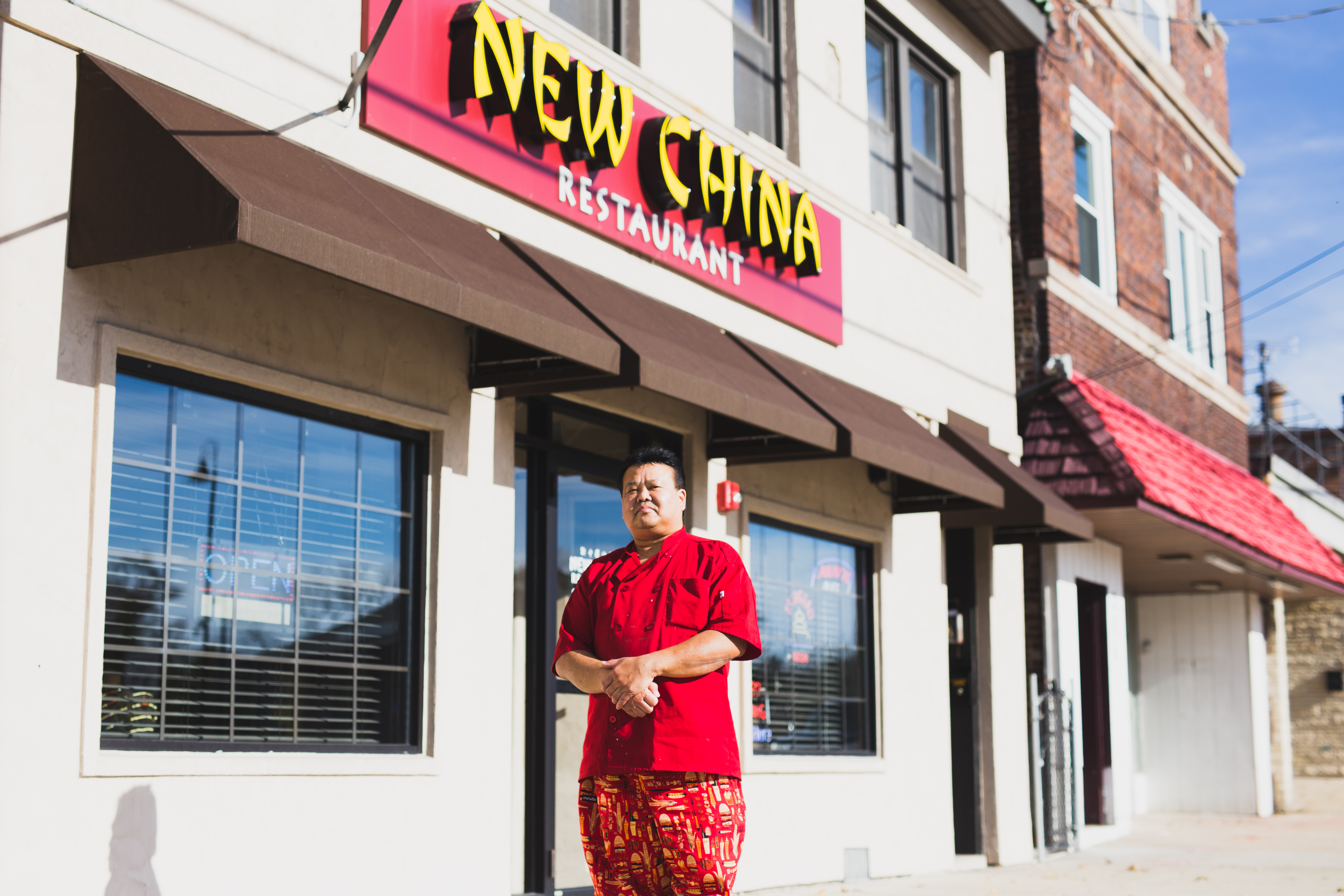This is not the biggest story in America – but it is part of one. It is a very local story, but one that says a lot of what is going wrong in America.
The New China Restaurant
William Gee grew up in the food service business in the Chicago suburb of Fox River Grove, Illinois. His parents opened the New China Restaurant in 1974. It immediately became one of the most popular eateries in town. Through the years, countless numbers of the communities’ young people worked at the New China to earn money for college or maybe that first car.
Burned out
In 2013, the New China was destroyed by fire. The cost of rebuilding was beyond William Gee’s budget. That is when the people of Fox River Grove sprang into action. They raised enough money to enable Gee to open the new New China Restaurant.
Despite being closed for a month, the new eatery had regained its old popularity – and then some. According to Gee, he was serving more than 120 pounds of chicken A DAY – not to mention a lot of egg rolls and fortune cookies.
Happy Days …
Gee had the perfect restaurant in the perfect location in the perfect community as far as he was concerned. What could go wrong? In a word, everything.
… until the politicians get involved.
It seems that the Fox River Grove village board has other plans for the block where New China and a number of other businesses were located. They want to tear down the entire block and make it available for a “higher and better use.” That is the legal language for exercising the power of eminent domain — to force all the property owners to sell their buildings and businesses.
Eminent Domain
Historically, the power of eminent domain was to be exercised only in situations where there was a clear PUBLIC good or necessity. Note the emphasis on “PUBLIC.” Land could be taken for a public project, such as a highway, library or tertiary treatment plant. It was also necessary to make a case that the particular land in question was essential to the project.
Kelo v. City of New London
The definition of “public good” changed in 2005 when the liberal faction of the United States Supreme Court (John Stevens, David Souter, Ruth Bader Ginsberg and Stephen Breyer) were joined by recently retired Anthony Kennedy in a 5 to 4 decision that said economic development was a permissible reason to confiscate property under the “takings clause” of the Fifth Amendment. Of course, this is not the first time the activist liberals had weakened our Constitutional guarantees – of which property rights were paramount in the thinking of our Founders.
It was no longer about the importance of the project to the community, but the money it would generate for the town treasury. If, for example, some developer would build a shopping mall or high-rise apartment on the property, it would generate more tax revenue than the New China Restaurant and all those other stores up and down the block.
According to modern urban management, the income from a property is more important to the public good than some mamasan and Papasan restaurant. (yes, I know “mamasan” and “Papasan” are mostly thought of as Japanese, but the terms also apply to other East Asians. So, give me a little literary license on that one.)
More and more, eminent domain is being used to force the transfer of private property from one owner to another at rates of prescribed reimbursement that never reach fair market value – what an owner could actually receive from the property in a private sale.
No development is in sight
In the Fox River Grove case, it is even worse. You see, the town fathers (and mothers, I presume) have no idea what they will be doing with the property once they acquire it. There are no private developers who have requested to purchase the downtown block. There are no proposals for that shopping mall or high-rise apartment. None of those pretty artist drawings. Nothing.
The village board wants to gamble that once the village has title to the property, they will be able to sell it for a nice profit AND get higher taxes – although not as high as they could be because these same board members will often offer tax breaks to get a developer on board.
Fair compensation … not
Fox River Grove has told Gee that his property is worth no more than $330,000. The Gee family purchased the property in 1974 for $190,000 (equivalent to more than $800,000 today). Gee has put more than $200,000 in developing the property. Then there is the value of the business. In a private transaction, Gee would likely receive more than $1 million for the property. The $330,000 offered by the Village would not come close to enabling Gee to secure new property and re-open his restaurant for the second time.
An attack on private property
Though we do not hear much about it, the abuse of eminent domain has been a serious problem for many property owners. Although our Constitution was drafted to defend our property rights, the courts have frittered them away on all sorts of decisions undermining those rights. It is not just eminent domain, but civil seizure and even the IRS’s confiscation of property without even adjudication.
As Gee said, “If it can happen here, it can happen anywhere.” And it does – more often than we could possibly know.
Good fortune needed.
Gee’s future is hanging in the balance. The next time he opens a fortune cookie, we can only hope it says, “You will find happiness staying where you belong.”
(I must confess that I have a personal interest in this story because my own son earned a lot of his college money delivering Chinese food for a local restaurant and, oh yeah, I also really like Chinese food.)
So, there ‘tis.




